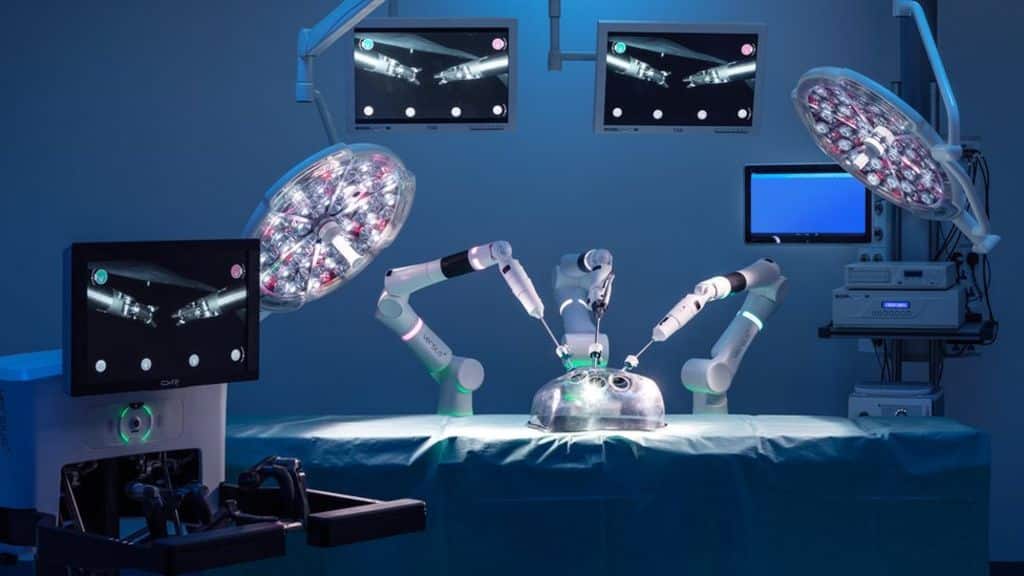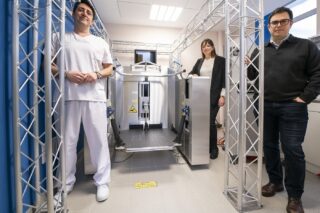Digital Surgery, a UK-based health tech company recently launched its dynamic AI system to support surgical teams. The creators of this real-time artificial intelligence for hospital operating rooms are now looking to develop surgical robots to work alongside doctors.
Nearly a year on the technology is now in 160 hospitals in the US and is being installed in leading institutions across Britain, Europe and countries worldwide. The AI system breaks down a surgical procedure into a step by step guide automatically using trained algorithms to help stop near misses or serious incidents. Data analytics and visual guides are presented to medics securely on a mobile device. The system helps teams prepare for future surgeries and make better decisions. It also ensures health systems are continually improving the quality and safety of care.
The system uses machine learning to recognize what is happening during surgery through a camera, cross-checking and correlating anatomy and actions against a library of surgical roadmaps. Medics can see in real-time what the platform is analyzing, helping them predict their next steps.
Jean Nehme, co-founder and chief executive of the company, said:
“Surgical teams have been incredibly excited about using our AI system. We have seen a lot of real-life examples of how teams and patients have been benefiting from it. In one case, the AI system picked up an error in instrumentation, which could have caused a major patient safety incident.”
He added:
“A surgeon told us about another case where she was able to identify a step that took longer than usual through our analytics feature. This enabled her to go back and review exactly what happened, make a note describing how she solved the difficulty, and share it with her trainees.”

AI-Powered Surgical Robots
This system comes as politicians and policymakers in the UK, US, China and across the globe make commitments to funding research and programs that integrate AI for greater efficiency in underfunded hospitals.
Dr. Nehme said:
“We see AI being revolutionary in many ways. The motivation is that algorithms can help human healthcare workers provide better care. For us and our space, I believe the next step, driven by AI, will be the augmentation of surgical robots. When you look at the craft that is surgery today, the surgeon needs to calibrate multiple factors. Being able to take in and optimize across all of these parameters is not possible with a surgical robot today.”
He explained:
“Moving into the future, robotics will be supplemented with algorithmic capabilities. They will be able to continuously monitor the procedure itself, tapping into its archival knowledge, and be able to provide the surgeon decision support for the most critical parts of the procedure. We believe this cognitive support for the surgeon, executed by AI-powered robots, will be a step-change in the estimated $40B robot-assisted surgery market.”










